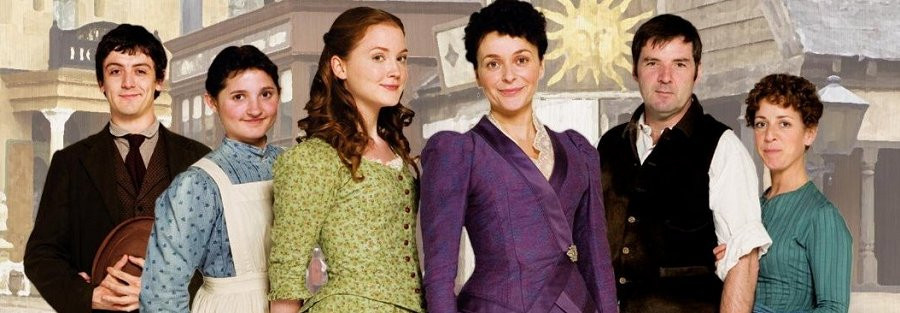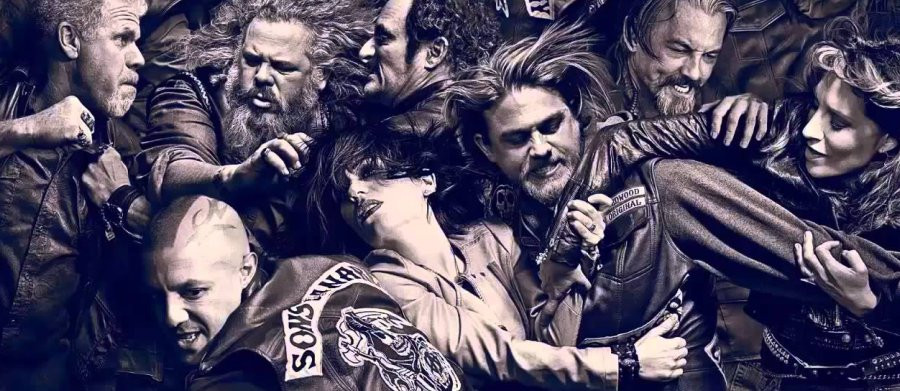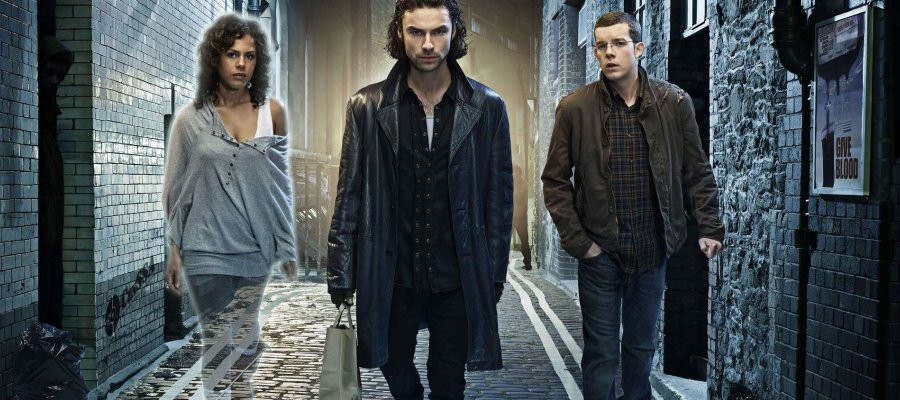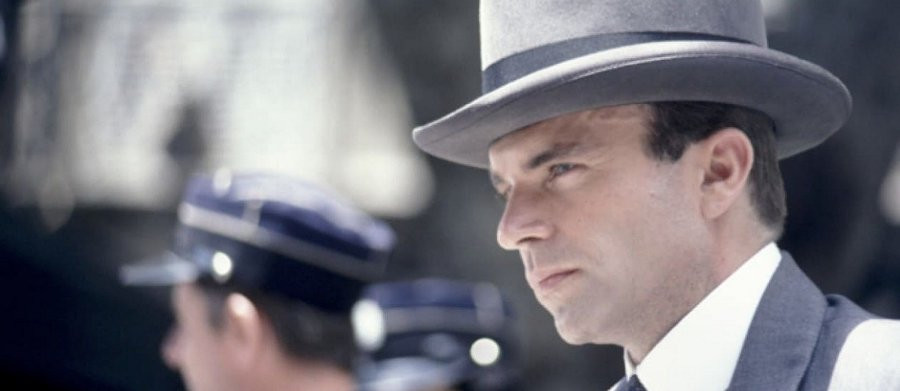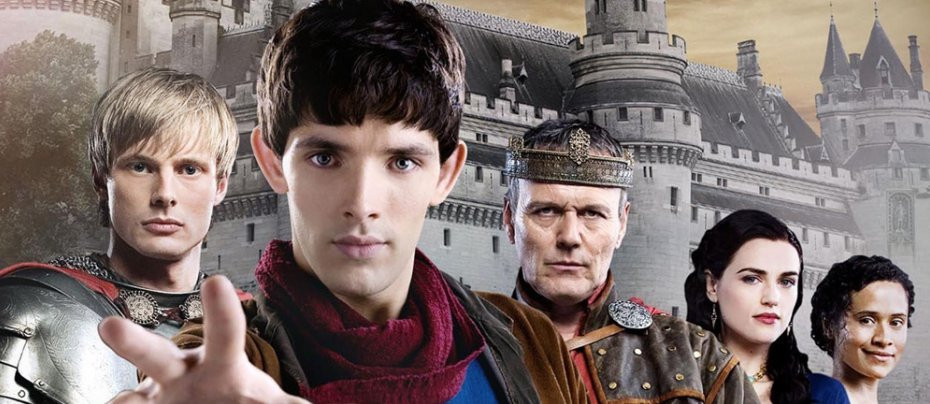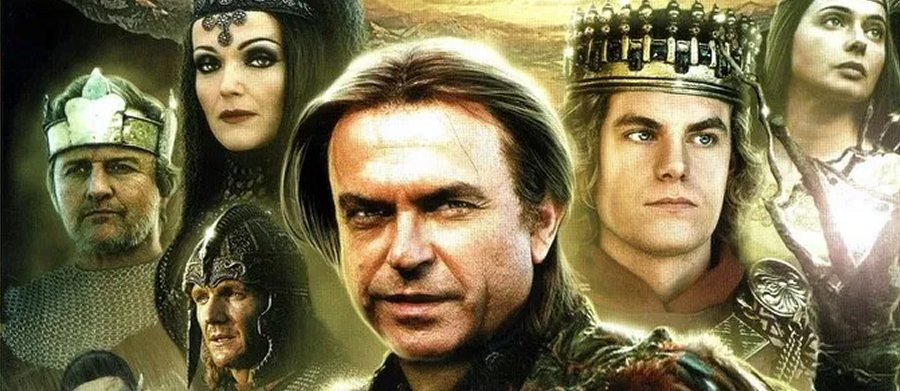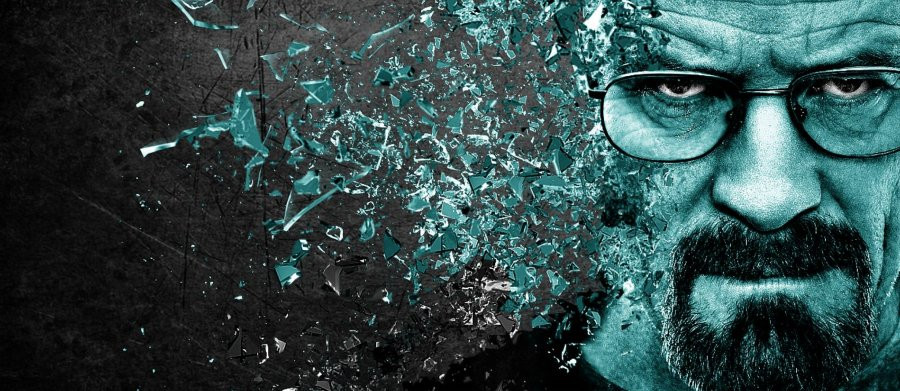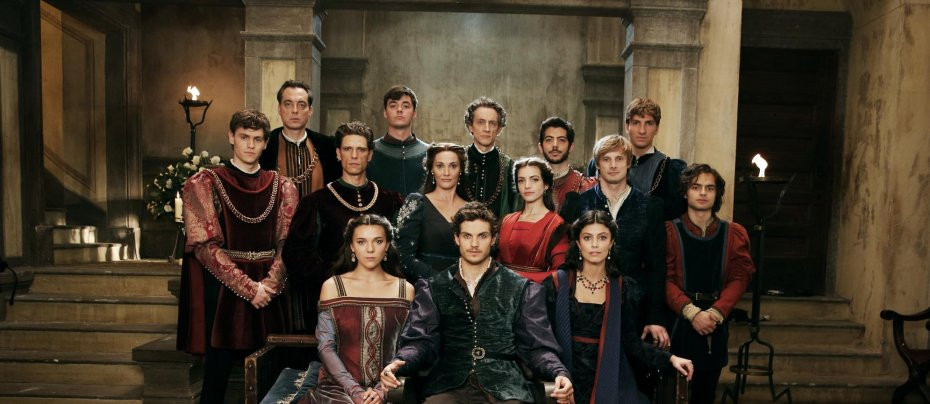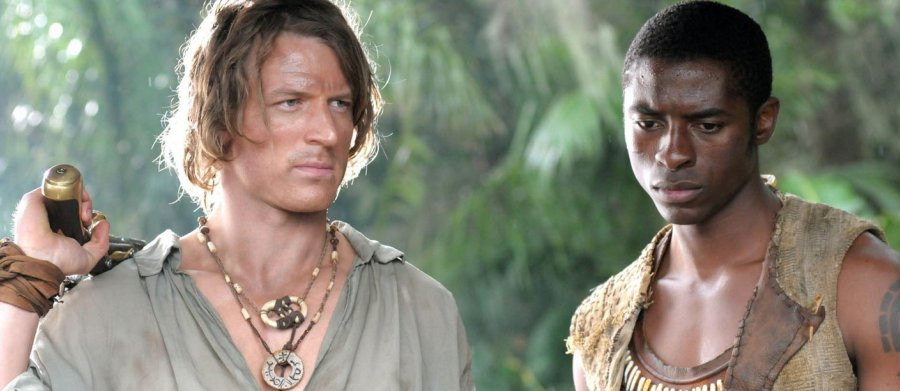
Crusoe
2008 - United StatesReview: John Winterson Richards
Any producers looking for ideas could do worse than look at the life of Daniel Defoe. Entrepreneur, pen for hire, international man of mystery, and arguably the Father of British Journalism, he had the knack of appearing to be everywhere in early 18th Century Britain (which he helped to invent), knowing everyone and everything, and writing about them. He may have had at least a hand in up to 500 published works on a huge range of subjects. As is often the case with Defoe, no one is entirely sure.
The year 1719 found him, as usual, in financial difficulties. Ironically a lifelong Whig, he had been rescued from the consequences of his unsuccessful business dealings by considerable grants from the Tory Government of Robert Harley, Earl of Oxford, in return for his work as a political pamphleteer and secret agent. The beginning of a long period of Whig Government was therefore bad news for him personally.
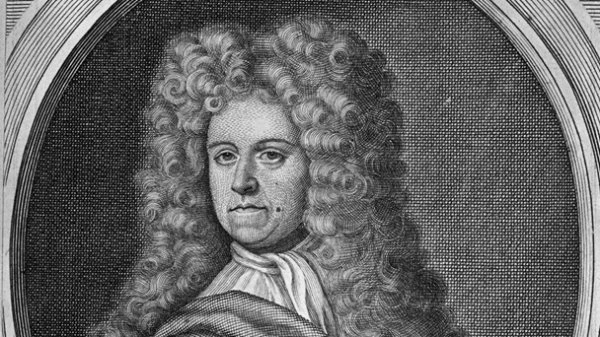
At the age of almost sixty, he needed to try something completely different - so he basically invented the modern English novel.
This was Robinson Crusoe. People had written down long stories before. What made Robinson Crusoe so radical was the way Defoe combined the usual narration of events with insights into the inner life of the protagonist. We see those events from Crusoe's point of view. Although most modern readers tend to encounter it first as a children's story, it is a work of great psychological sophistication.
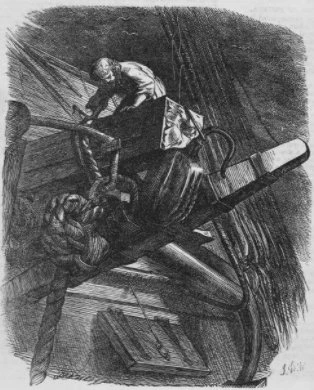
It was based on the established tradition of Calvinist Spiritual Autobiographies, of which John Bunyan's Grace Aboundingis the most famous. Although his life and writings suggest a pragmatic streak, Defoe was himself a strong Dissenting Calvinist, the sincerity of his faith proved by his refusal to conform to the Church of England, which would have made him eligible for profitable office like his contemporary Jonathan Swift (one of many unsourced Defoe legends is that Harley even considered him a potential successor).
Crusoe grows and matures as a character throughout the novel. Yet there are times when we wonder about the reliability of his narrative: this is what Crusoe wanted others to believe. Defoe the Journalist may have combined elements of several true stories, most notably that of the argumentative Scot, Alexander Selkirk. There is no solid evidence to support the tradition that Defoe met Selkirk in a Bristol pub, but Selkirk was in Bristol for a while - typically he was arrested for assault there - and Defoe certainly got around. Yet there are big differences between Crusoe and Selkirk, both in their circumstances (Crusoe was shipwrecked off the coast of Brazil while Selkirk was basically dumped in the middle of the Pacific) and their characters.
In the end, the real question is how much the practical, hard working but frustrated Calvinist entrepreneur Robinson Crusoe is a younger, idealised version of the practical, hard working but frustrated Calvinist entrepreneur Daniel Defoe?
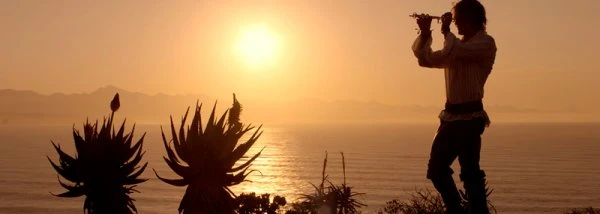
All this makes a great book, but great books are often the hardest to adapt for film or television. This is particularly true of Robinson Crusoe. While there are some great action set pieces, most of the novel consists of long accounts of personal growth and Spiritual struggle accompanied by hard solitary physical labour. How does one put this on screen? It fills at best a couple of short montages.
A valiant attempt was made by a fondly remembered 1960s Franco German "miniseries," shown on British television as The Adventures of Robinson Crusoe and repeated frequently as a summer holiday standard. Yet this was a children's version of the tale, considerably simplified.
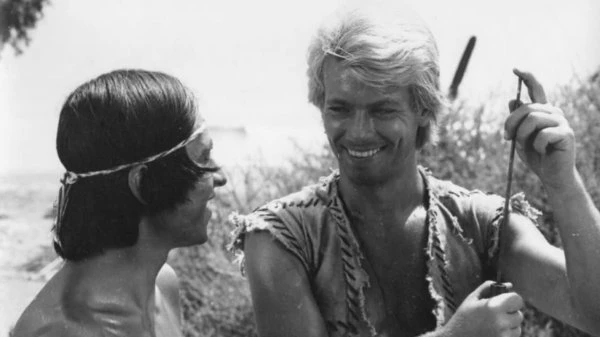
Although supposedly aimed at an older audience, Crusoe also avoids the depths of the novel. Indeed, it resembles nothing so much as one of those bright, colourful, light hearted 1990s syndicated action adventure shows like Hawkeye or Hercules: the Legendary Journeys.
This is very odd for two reasons. First, it was actually shown on a major American network, NBC. Second, it was made in 2008, by which time a very different aesthetic prevailed.
Despite that, someone seems to have put a lot of money into the production, with three fairly expensive looking faces in the supporting cast - Sam Neill, Sean Bean, and Joaquim de Almeida - and some very expensive looking location work in England, South Africa, and the Seychelles.
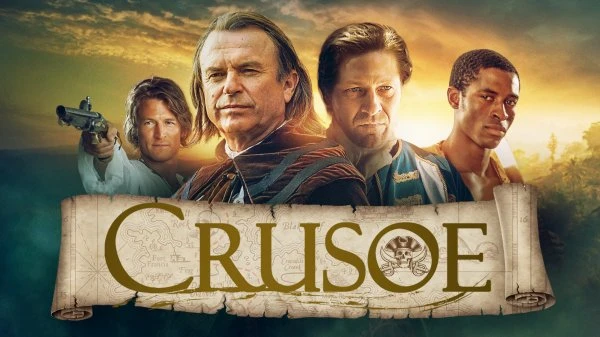
It seems a very strange investment for the time, and it is no surprise that it did not pay off. Although it can be considered a free standing "miniseries," the door was obviously left open for a continuation that never happened, and frankly was never going to happen.
While it was always destined to be a commercial failure, dramatically it is harder to assess. There is actually quite a lot to enjoy here, which makes it all the more irritating that more effort was not put into the plotting. One might forgive the departure from the potential of the source material if something better was put in its place. Instead we get an endless chain of absurdities, inconsistencies, and inaccuracies.
Crusoe and Friday live in what looks like a five-star boutique hotel in a tree house complex which is illuminated spectacularly at night. He has appeared to have wasted a great deal of his time and supposedly limited resources in constructing elaborate Heath Robinson type machines that make simple tasks far more complicated.

All this looks wonderful on screen but rather undermines one of the major themes of the novel, which is the struggle to survive. Another of the novel's themes is isolation but the island in Crusoeseems to be a very popular visitor destination.
In an understandable attempt to make the story more exciting to modern viewers, the script cuts rapidly between "current" events on the island, simultaneous events in England, and flashbacks to past events in both locations. Crusoe is given an elaborate new backstory, which would be excusable only if it was as credible or as compelling as what it replaced. In the end it was neither.
If one can ignore these irritations - big if - there is still a lot of fun to be had. All that location work pays off: the whole thing is very easy on the eye. Some of us miss the cheerier visual style of the Nineties. That was a reflection of a more positive and optimistic view of the world before 21st Century cynicism set in. Crusoe retains a little of that feeling and, dated as it seems these days, it is no less welcome for that. Its heart is in the right place.

For obvious commercial reasons, Crusoe's Spiritual quest takes a back seat, even if hints of it remain. So, also for obvious commercial reasons, but completely different ones, do the issues of slavery, racial discrimination, and colonisation. Crusoe, like Defoe and the vast majority of his contemporaries, took them for granted as part of the natural order of things. Indeed, in the book, Crusoe was on a slave trading voyage when he was shipwrecked. Book Crusoe develops on the island to the extent that he does not actually sell Friday as a slave after he is rescued - which represents progress on his part - but never considers him as anything but a servant.
In the 2008 television adaptation, Crusoe is necessarily, if anachronistically, transformed into a 21st Century liberal. He is shown running a plantation in flashback, but it is implied that his labourers were hired freemen (yeah, right...). While nothing else would ever have got through the corporate hierarchy at NBC, the opportunity is lost to examine the true nature of attitudes to slavery and racism in history in a way which might have offered the viewer something genuinely informative and even useful. It is an unpalatable truth that bad things happen not only because bad people do them but because good people tolerate them. It would be helpful if television illustrated this happening and engaged with how and why it does.
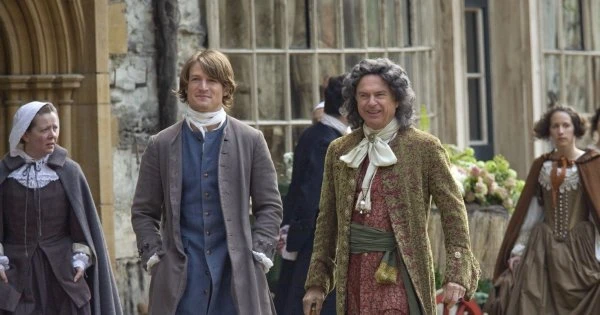
At least the Bowdlerised version gives a more agreeable dynamic to the friendship between Crusoe (Philip Winchester) and Friday (Tongayi Chirisa): it a believable portrait of two highly competitive young men cautiously sounding each other out. Both actors are likeable in their roles, and the three big names do what they were hired to do by bringing a touch of heavyweight class to the proceedings: it is no spoiler to say that Sam Neill is particularly Sam Neill, and Sean Bean does what Sean Bean usually does these days (you can only run a sweepstakes on when and how), while de Almeida probably gets the best of the deal as an ambiguous character who makes an unexpected journey of his own. Sharp eyed early 18th Century historical drama fans might also spot a few familiar faces from Black Sails, the pirate drama filmed in South Africa a few years later, also based loosely on a - possible - Defoe publication.

It is therefore all the more frustrating that these potentially interesting elements were not brought together in a more interesting show. It is yet another example of how a great deal of time and money and effort can be put into every aspect of a project except for the one on which all the others depend, the script. For all that, Crusoe is not a bad show. On the contrary, it is often a very entertaining show. That is in fact its tragedy - that with just a bit more thought it might have been a very good show.
John Winterson Richards is the author of the 'Xenophobe's Guide to the Welsh'and the 'Bluffer's Guide to Small Business,' both of which have been reprinted more than twenty times in English and translated into several other languages. He was editor of the latest Bluffer's Guide to Management and, as a freelance writer, has had over 500 commissioned articles published.
He is also the author of ‘How to Build Your Own Pyramid: A Practical Guide to Organisational Structures' and co-author of 'The Context of Christ: the History and Politics of Rome and Judea, 100 BC - 33 AD,' as well as the author of several novels under the name Charles Cromwell, all of which can be downloaded from Amazon. John has also written over 100 reviews for Television Heaven.
John's Website can be found by clicking here: John Winterson Richards
Books by John Winterson Richards:
Seen this show? How do you rate it?
Seen this show? How do you rate it?
Published on November 3rd, 2020. Written by John Winterson Richards for Television Heaven.


